‘Everything changed on my way to a giant Wetherspoons in Cardiff’ – four years reporting on the Brexit wars
Tom Peck began writing about politics in November 2015, just three months before the EU referendum was announced, and while there have been countless twists and turns, what really stands out is the number of appalling lies that have been told, the true consequences of which we are about to discover

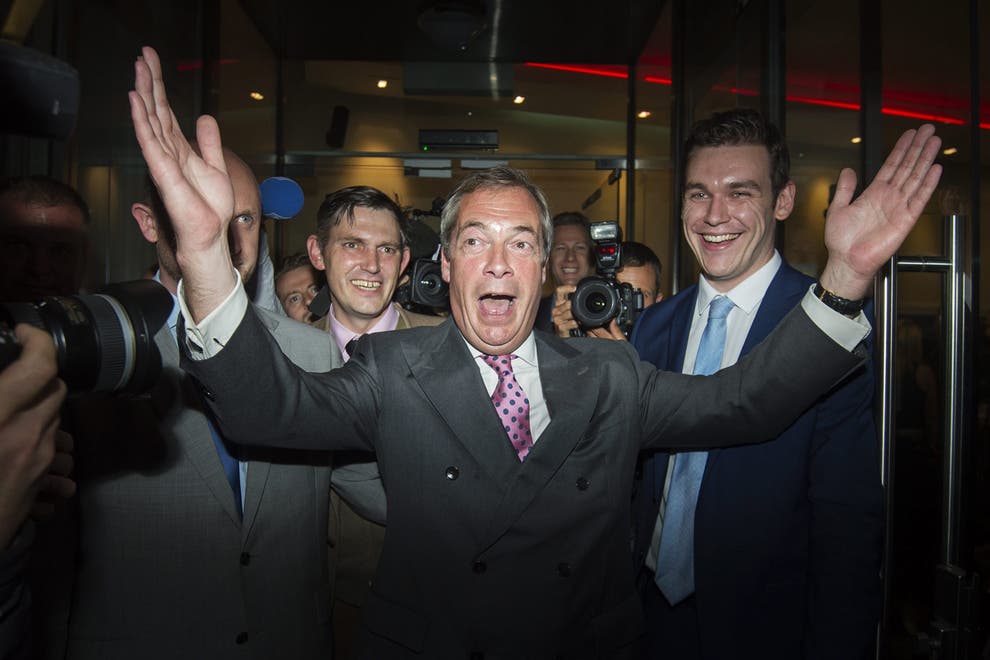
For me, the moment everything changed took place on a train in a tunnel just outside Paddington Station. I was on my way to Cardiff to watch the England vs Wales Euro 2016 football match in a giant Wetherspoons, in order to try to contrive some kind of piece about Brexit and the union, about Britishness and Europeanness and the politics of identity.
I’d chosen to do this over yet another photocall with Nigel Farage. I’d been to so many of them, and they were always the same. At least they were back then. There was usually an open top bus and there was always – always – the whistled theme tune to The Great Escape. It was Farage’s leitmotif. When you heard that whistle, there would be Nigel, like a WWE wrestler or a character in Peter and the Wolf.
On this occasion, terrible 4G signal meant I heard the whistling first. It took the pictures several minutes to appear on my phone, but there they were. Or more accurately, there he was, flashing his usual, studied wideboy grin in front of two large words, “Breaking Point”.
In an almost empty carriage, in front of no one, I remember physically recoiling, like a hammy actor. The de facto chief strategist of the Remain campaign, Craig Oliver, would later call his Brexit memoir Unleashing Demons. I clearly recall thinking, at that moment, that we would be going to places, as a country, from which we would not very easily come back.
***
I began working in Westminster and writing about politics in November 2015, just three months before the EU referendum was announced. There was, for all that time, a breezy certainty around that Remain would win. I went along with it, for the most part, but I never quite understood why everybody seemed so sure. In April 2016, two months later, I was sitting at a formal dinner with Liz Truss and a very senior broadcast journalist from Sky News, and most of the evening was spent discussing the size of the margin of the inevitable Remain victory.
The morning after the result, Robert Peston wrote a memorable blog, in which he described his life in a “Remain bubble”. That he didn’t know a single person, didn’t have a single friend, that had voted Leave, and yet Leave had won.
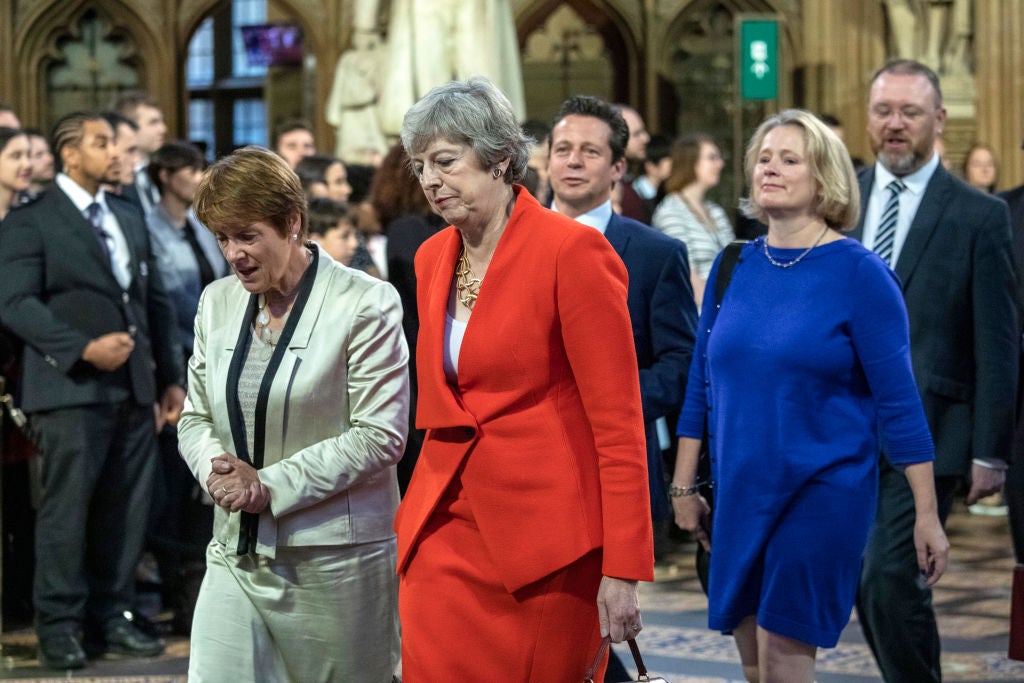
That was not my experience. I grew up in the far, far east London borough of Havering – Essex, essentially. London may have backed Remain, but Havering voted Leave by 70 per cent. I had seen my Facebook feed turn steadily wild. I have always been deeply interested in politics. I did my undergraduate degree in it, for one thing. I could see the referendum campaign had appeared to ignite a fervent interest in politics in highly unlikely sources, former colleagues from mundane summer jobs sharing mad, far-right posts from Britain First.
By the time of my train journey to Wales, I was increasingly of the view that the establishment, if you like, might be in for a shock. So much so that I had effectively placed a bet on Brexit, by transferring £1,000 of my own money into US dollars on a foreign currency app. A Brexit vote would tank the pound, and I would be quids in. (It sounds like a big bet but my exposure was low. The absolute most I might lose or gain would be about £100.)
Checking the current value of that £1,000 had become an obsession. I rarely went more than 10 minutes without looking in on it. The pound-dollar rate was, by that point, the clearest and most precise measure of the direction in which the vote was headed, and for five days the return on my bet had been steadily rising.
When the English and Welsh teams walked out on to the pitch in Lens, I was watching the value of my dollars plummet and I didn’t know why. If you look back at the currency charts now, you can clearly see a sharp spike in the graph (though it would be dwarfed a week later, on the night of the vote itself).
It marks the moment of Jo Cox’s murder. Specifically, at that point, it confirmed the prevailing view that a possible flirtation with Brexit was over, and Remain would now win.
A week is a long time in politics, but few are longer than that one. That three days before the Brexit vote, a murdered MP’s children were ushered into the public galleries of the House of Commons to witness what was, in all but name, a funeral to their own mother, is no less shocking now than it was then.
MPs enter the Commons via a door that is adjacent to one through which journalists pass to take the lift to their own seats. Stephen Kinnock, Jo Cox’s close friend, was to deliver what was in effect the eulogy that afternoon. He paused in the doorway, head bowed, pressing his closed fist against his mouth, as if temporarily overwhelmed by the full horror of the occasion. Chuka Umunna placed an arm around his shoulder and in they went. Things in politics were very much not normal, and they would not be again.
***
Social media, and specifically journalists’ awful addiction to Twitter, has an extraordinary capacity to elevate the puerile in everything. As the country steadied itself to make a truly seismic decision, I was not alone in having become semi-enraptured by the slow motion collapse of “Bpoplive”, a planned pro-Brexit pop concert turned rally. One of Nigel Farage’s acolytes, Andy Wigmore, kept booking well-known bands to appear in Birmingham, essentially without telling them what the event involved.
Their having agreed to play would then be reported in the media, and they would then pull out. Eventually, the line-up appeared to have stabilised, with Gwen Dickey Rose Royce, one of three still-touring iterations of Bucks Fizz, and two of the four remaining members of the boyband Five.
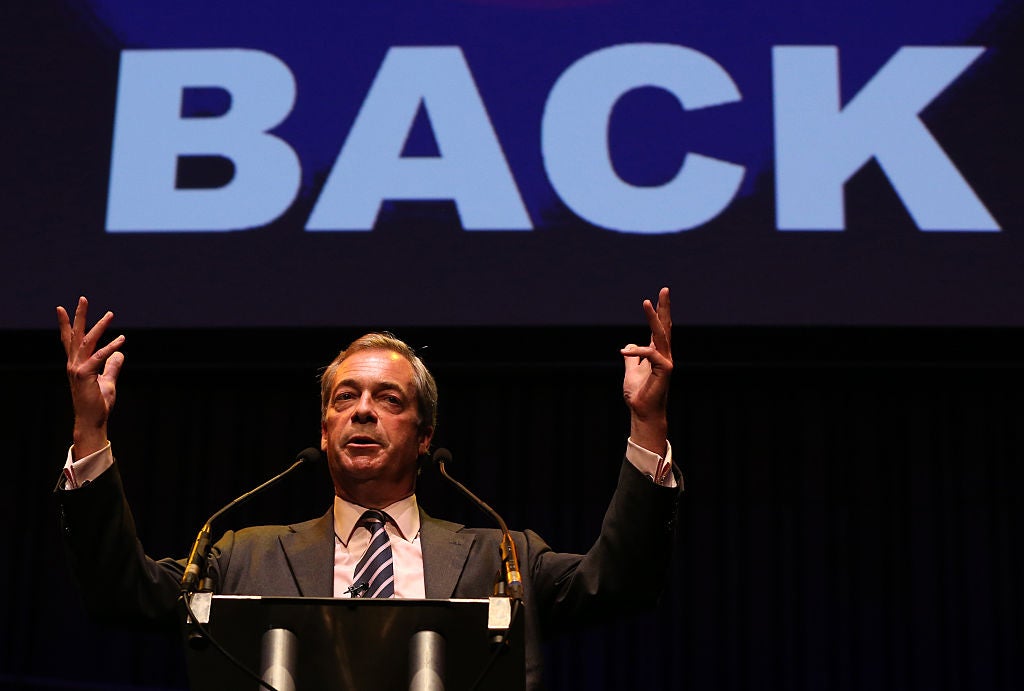
But then Five pulled out and the event was off. On the night of 23 June itself, Farage and co held a party on one of the higher floors of the Millbank Tower. I was among the first to arrive, at 9pm, and was, I think, the only person who diligently sat and watched Gwen Dickey Rose Royce’s entire performance, it being all that remained of Bpoplive.
An hour later, Nigel Farage would be there, giving what was, in effect, a concession speech. The polls by that point were clear enough. It was also clear that Euroscepticism was going nowhere. There would be no going back. David Cameron had won, but his grand plan, of healing once and for all the divisions in his party, through the medium of a nationwide poll, had completely failed.
Of course, it didn’t quite work out like that. Cameron failed not merely partially but totally. He would be out of a job within hours, and politics descended into a two-week-long, Quentin Tarantino-esque bloodbath from which it has not fully recovered.
In the now-famous footage of the results coming in on a big screen in that room, sending very clean-shaven, very young and slightly psychopathic-looking young men into yelping apoplectic delight, I can be detected in the back of some of them, gape-jawed and dazed. At 1.52am, my phone confirms, I texted a colleague with the words, “I am shaking.”
For years, the common complaint about politics, not just in Britain but in most of the western world, was that there was no point in voting: they’re all the same and nothing ever changes. But this, to be blunt, is a good thing. When parties must tack to the centre to win, they provide consolation to the loser. When a Blair beats a Major, or a Cameron beats a Brown, the voter whose vote came to nothing can cope with the outcome.
Or, as Clive James put it 20 years ago: “To those who proclaim that there is nothing interesting about a centralised politics in which two similar parties are divided only by their proposed methods of achieving the same ends, there is a sharp answer. Those are the only politics worthy of the name, and we are very lucky to live in an epoch where they prevail.”
In those terms, the small hours of the middle of the night on 23 June 2016 can be accurately described by a much overused term: they were epoch-shifting. There was nothing on offer for the loser, no compensation or consolation. There was just Nigel Farage, swanking about in the dawn, king of all he saw.
In that moment, two tribes were formed, with allegiances felt more fiercely than to any political party. What counted for political debate descended into blind vitriol. Question Time became 60 straight minutes of vituperation, week after week after week.
***
If there are seven stages of grief, then four-and-a-half years later I can say without any doubt at all that I am nowhere near through them. I have not come close to acceptance, and I cannot imagine that I will.
The Theresa May years felt important at the time, but I am not alone in struggling to remember anything about them. The Chequers Agreement, the Irish Backstop, the Malthouse Compromise – all necessitate a trip to google.com. At the time, after some late-night vote or other, I recall a fellow journalist remarking that, for all the talk of having been a witness to history, these long years of torment would be glossed over by the historians in hardly a sentence. Without a parliamentary majority, Theresa May tried many times to pass her withdrawal agreement through the House of Commons but was unable to, and in the end, resigned. That’s it. That’s all there is.
The sheer misery that was gone through, by so very many people, for what has already been forgotten is almost too traumatic to look back on. The Sisyphean agony of it all, and all for an outcome that had nothing at all to commend it. All this, only to be a poorer country, an embarrassment on the international stage, a geopolitical Luddite having a very late midlife crisis.
It is hard to forgive the appalling lies that were told. The foul, despicable Facebook campaigns about Turkey joining the EU, about the UK’s new border being with “Iraq and Syria”. About a week before the vote, Channel 4 vox-popped a late-middle-aged man on the street in Barnsley who told them he was voting Leave to stop “people from Iraq and Syria and everywhere else” coming here. “It’s all wrong,” he said. “All wrong.”
It was insane to watch. Where had he got it from? About a year later, Vote Leave would be forced to publish its secret, highly targeted Facebook advertising campaign, in which this utter garbage featured prominently. In the near future, this kind of campaigning will almost certainly be illegal. But it’s too late now.
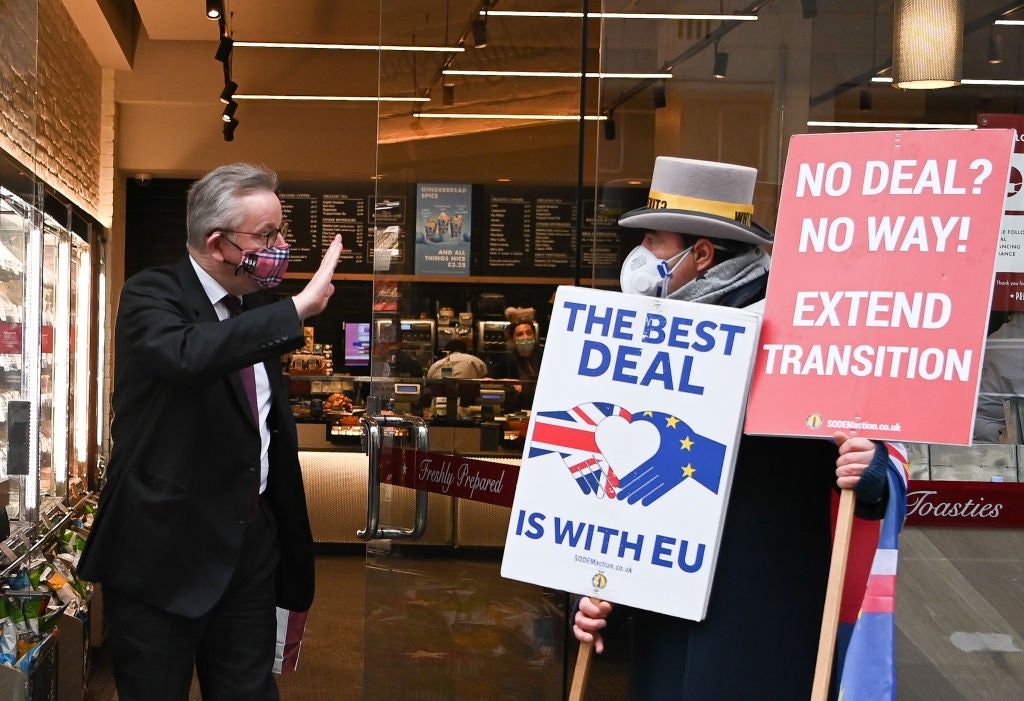
Those who were involved are, all of them, far too lacking in the moral courage required to take responsibility for what they did. Vote Leave was the most successful political campaign group in British history, yet no one will take any responsibility for its success. Michael Gove routinely lies about what it said about immigration. Boris Johnson said, in early 2019, that during the entire referendum campaign he “didn’t say a word about Turkey, mate”. A blatant lie.
Tory MP Steve Baker regularly admits in private to being disgusted and appalled by the aggressively Islamophobic aspects of the campaign, but he did not speak up at the time.
Boris Johnson and co imagine that “the deal” being done marks some kind of closure, some moment of national healing. But it is nothing of the sort. The idea that Brexit will now go away, or become a lower-order question, seems highly unlikely to me. It is a statement of fact that it has only just begun.
How keenly the miseries of it are felt is hard to predict, but they are not small. Many British businesses can no longer sell their goods to fellow British people in Northern Ireland. British retirees with homes on the continent, very few of whom you would describe as rich, have now had a great big egregious wall of needless hassle and admin erected in the middle of their lives.
There is absolutely no sensible analysis anywhere that does not point to relative decline, relatively fast, its hardships visited on a younger generation who have had enough hardship already. The idea that they will consider the matter settled, just shrug and accept a future they don’t want, which runs counter to the prevailing global mood of youth, seems preposterous to me.
Because 2020 has been such a miserable year, it is easy to forget how much there has been to celebrate. It is distinctly possible that rock bottom has already been reached. The Labour Party seems to be ready again to do its bit to uphold proper politics, America has turned its back on Donald Trump and, on the coronavirus front, human ingenuity would appear to be on the way to finally outsmarting its glycoprotein-spiked oppressor.
It’s possible, too, that we are returning to the realm in which political predictions have a shelf life slightly shorter than that of a prawn sandwich.
In announcing his deal, on Christmas Eve, Boris Johnson spoke of a United Kingdom that was now “happy and contented”. Not a chance.
Brexit? I’d give it 10 years; 20 at the very most.


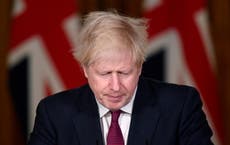



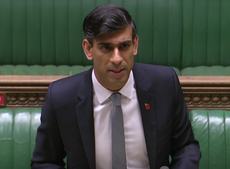
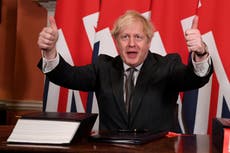
Join our commenting forum
Join thought-provoking conversations, follow other Independent readers and see their replies